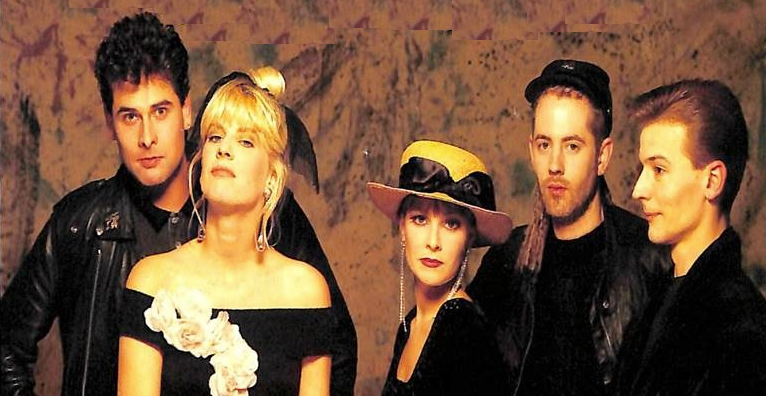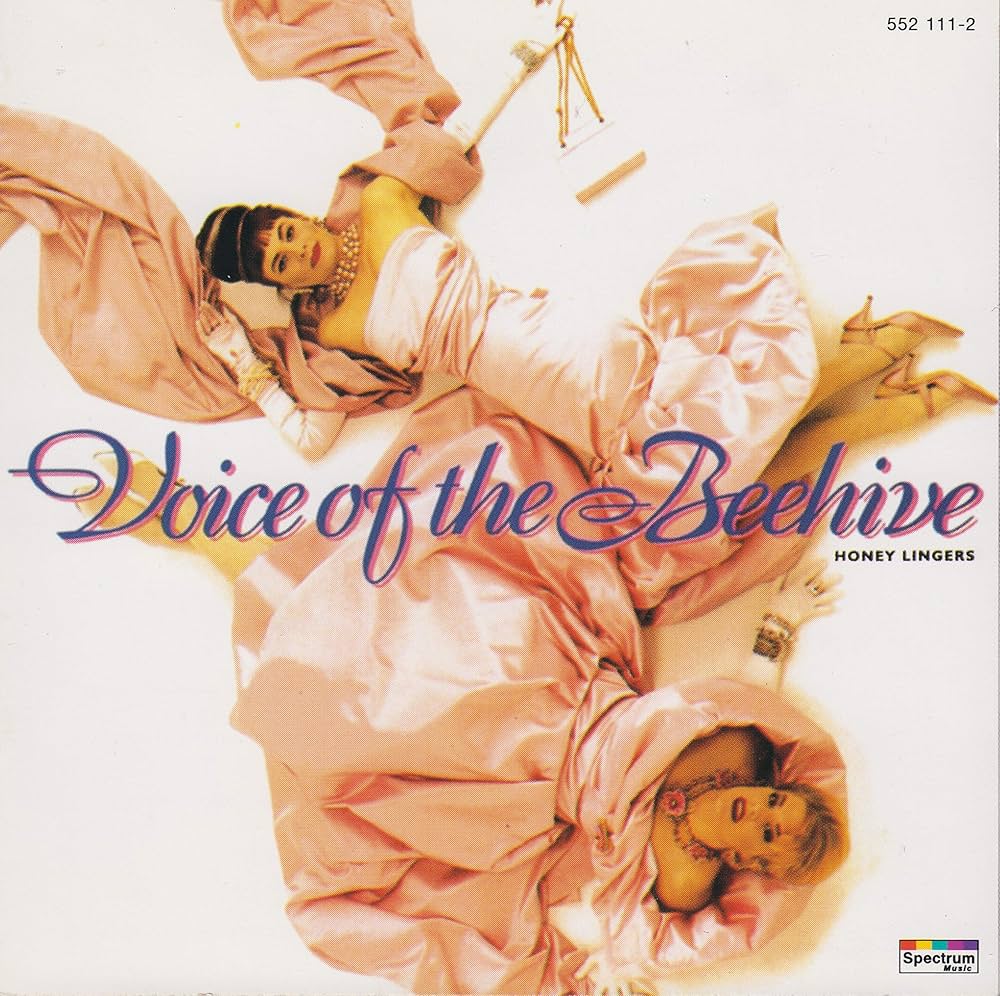Listeners:
Top listeners:
-
play_arrow
Hurricane Lexi

Voice of the Beehive—a name that buzzed through the late 1980s and early 1990s with its unique blend of infectious pop melodies and sharp lyrics. Formed in 1986, the Anglo-American band stood out with their distinctive sound and vibrant energy. The group was led by charismatic sisters Tracey Bryn and Melissa Brooke Belland, daughters of The Four Preps singer Bruce Belland, who infused their music with a mix of playful rebellion and heartfelt emotion.
Joining the Belland sisters were British musicians Martin Brett (bass), Mike Jones (guitar), Daniel “Woody” Woodgate (drums, also of Madness fame), and Mark Bedford (briefly). Together, they crafted a sound that resonated with audiences on both sides of the Atlantic, blending indie sensibilities with chart-friendly hooks.
Voice of the Beehive: A Timeline of Hits and Highlights
1988 – Let It Bee
Their debut album, Let It Bee, hit the shelves in 1988, showcasing their knack for crafting catchy, witty songs. The album spawned hits like “Don’t Call Me Baby”, which became their signature track, and “I Say Nothing,” a feisty anthem of independence. Critics lauded the album for its mix of punk attitude and pop polish.
1991 – Honey Lingers
Their sophomore effort, Honey Lingers, solidified their presence in the music world. The standout track “I Think I Love You”, a clever cover of the Partridge Family hit, was a chart success, reaching #12 in the Australia. The album also included “Monsters and Angels,” a hauntingly beautiful track that showcased the band’s versatility.
1996 – Sex & Misery
After a five-year hiatus, the band released their third album, Sex & Misery, under a new label. Although less commercially successful, the record contained gems like “Scary Kisses,” a melodic anthem that became a cult favorite among fans. However, internal pressures and changes in the music industry began to take their toll.
The Breakup: Why Did Voice of the Beehive Disband?
The mid-1990s proved challenging for Voice of the Beehive. Shifts in musical trends saw grunge and Britpop dominate the charts, leaving little room for their brand of quirky, guitar-driven pop. Creative differences and the relentless pressures of the music industry added to the strain. By 1996, the band decided to call it quits, leaving fans yearning for more.
In interviews, Tracey Bryn mentioned the personal and professional toll of constant touring and the changing music landscape. Melissa Belland echoed similar sentiments, expressing a desire to step away from the limelight to focus on other passions.
Read More where are they nows here.
Where Are “Voice of the Beehive” Now?
- Tracey Bryn
Tracey relocated to California, where she found a new passion in education. She became a teacher, channeling her creativity into inspiring young minds. - Melissa Belland
Melissa pursued various creative projects, including writing and photography. She remains active on social media, occasionally sharing memories of her time in Voice of the Beehive. - Daniel “Woody” Woodgate
Woody returned to his roots with Madness, where he continues to perform and record. His tenure with Voice of the Beehive remains a cherished chapter in his career. - Martin Brett and Mike Jones
Both Brett and Jones stayed connected to the music scene, dabbling in production and other projects.
Legacy and Influence
Though Voice of the Beehive’s career was relatively short-lived, their music continues to resonate with fans. Tracks like “Perfect Place” and “I Think I Love You” serve as nostalgic reminders of a band that wasn’t afraid to blend vulnerability with an irreverent edge. Their songs have found new life on streaming platforms, introducing their infectious sound to a new generation.
A Perfect Place in Pop History
Voice of the Beehive may have disbanded, but their music remains timeless. They are a reminder of an era when pop could be both fun and introspective, making their story a perfect place to revisit—and celebrate.

Written by: Paul Y
Similar posts
Search
-
Poprock Radio Player
-
Get Our App
-
PopRock Country



